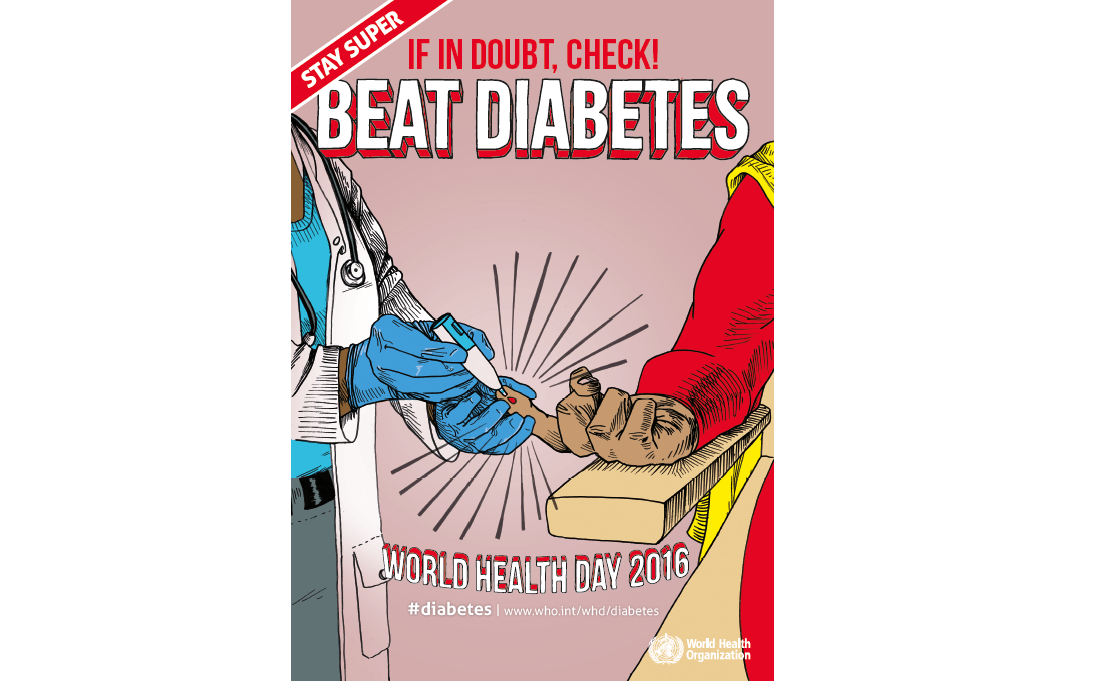Diabetes is an illness that affects a very important fraction of the general population, which nowadays is increasing rapidly. During the past 35 years, diabetes cases have more than quadrupled, and according to World Health Organization they already achieve the horrific number of 347 million cases.
Hence, seeing the incresing number of cases and their seriousness (in 2012 diabetes was the cause of more than 1.5 million people’s death and it is expected than by 2030 it will be the seventh world death cause), this year the World Health organization has decided to dedicate World Health Day to diabetes, with the aim of reinforcing prevention, improving medical care received by patients suffering from this disease and strengthening awareness regarding diabetes, a disease that could be prevented in a great proportion of cases.
Diabetes is a chronic disease that has its origin in the failure of the pancreas to syntetize the amount of insuline the human body needs. Insuline is responsible for the control of glucose level in blood.
Therefore, diabetes causes an increase of glucose levels in blood, as the glucose is not distributed as it should. This may cause ocular damages, as the high glucose levels harm blood vessels in the retina, the rear part of the eye, and make them more permeable, which may let fluids leak to areas where they shouldn’t. New abnormal blood vessels may also appear, and they can lead to hemorrhages. This illneas is known as diabetic retinopathy.
Which are the symptoms of diabetic retinopathy?
Some of the symptoms are the following:
- Spots, points, nets or “flies” floating on your vision
- Blur vision
- Dark areas in vision
- Night vision problems
- Vision loss
- Alteration of color perception
Other ocular diseases
Diabetes also increases the risk of suffering glaucoma, cataract and othe ocular problems.
Can diabetes be prevented?
Type 1 diabetes cannot be prevented and their causes are still unknown. However, it is possible to prevent type 2 diabetes. Some advices may be followed:
- Keep a healthy diet, with a low fat content
- Reduce the intake of fast food and carbonated, sugary drinks.
- Practice sport activities
Furthermore, Institut Català de Retina advices to undergo medical check-ups that may help the disease to be detected at an early stage.

